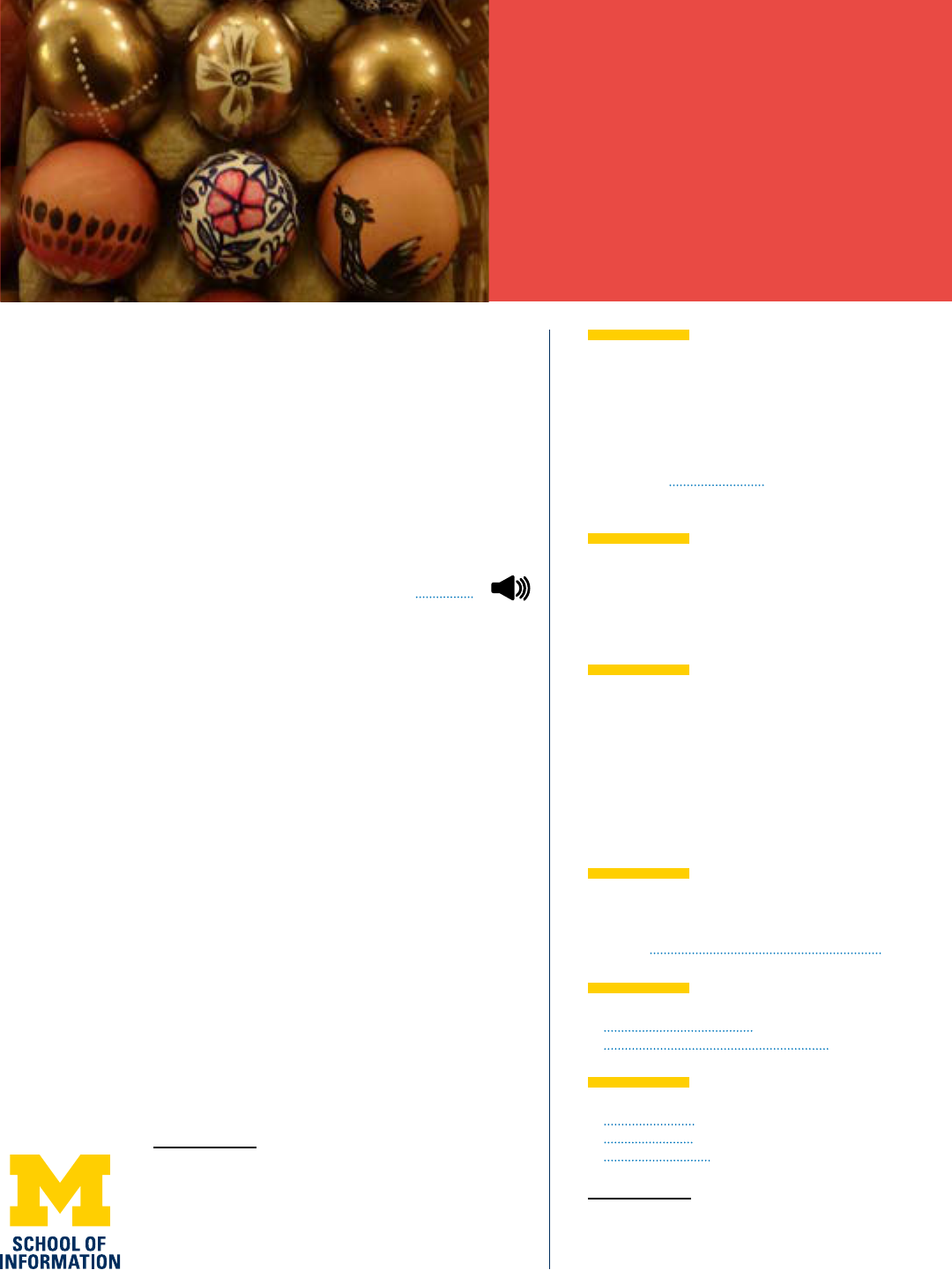
Happy Easter!
Date
• The date of this annual celebration varies from year to
year, occurring on a Sunday between the end of March
and early May.
• Christian Orthodox churches calculate the date
according to the Julian calendar so the date usually
occurs after the western observance.
• Check the Calendar Index for Religious Holidays during
the current academic year for the exact date.
Greetings
• Christians greet one another on this day by saying,
“Christ is risen,” with another person replying, “He is
risen indeed,” or people may just say “Happy Easter” to
each other.
Common Practices and Celebrations
• The week before Pascha, Holy Week, is filled with many
church services. This culminates with the service of the
Resurrection when we recognize Pascha.
• Fasting is observed 40 days prior to Easter (not
including Holy Week) avoiding meat and dairy
products.
• Pascha is a time of great celebration, there are no food
restrictions for the next 40 days.
Impact to U-M Community
• The holiday is always on a Sunday so no special
accommodations are likely required on U-M Campus.
• Link to
U-M Guidance Regarding Conflicts.
U-M Campus Resources
• Maize Pages - Orthodox, U-M
• Association of Religious Counselors, U-M
Information Sources
• Time and Date, holidays
• Religion Facts
• Blue Letter Bible, Matthew 28
On this day, Christians celebrate the
resurrection of Jesus Christ from the dead
after 3 days in the grave (Holy Friday,
Holy Saturday, and Pascha Sunday). The
resurrection is recorded in the Christian
Scriptures in Matthew chapter 28, Mark
chapter 16, Luke chapter 24, John chapter
20, and is recognized throughout the Epistles
– letters written mostly by St. Paul (it is
described theologically in particular in 1
Corinthians chapter 15). To Christians, it is
important because it fulfilled prophecies and
is the foundation of Christian belief, life, and
practice. It is the most important Feast Day
for Orthodox Christians.
Eastern Orthodox
Pascha
Greek for “Passover” (Easter)
EasterOrthodox Christian
This collection of information sheets on major holidays
and cultural events is a joint partnership of the School of
Information staff, the Office of Diversity, Equity, and Inclusion,
and the Office of the Provost. Facts have been vetted by
U-M’s Association of Religious Counselors (ARC), and other
campus groups. Public feedback is welcome; please email
Photo credit:
“Pascha 2015” by jimforest is licensed under CC BY-NC-ND 2.0
Edited 7/27/2021
